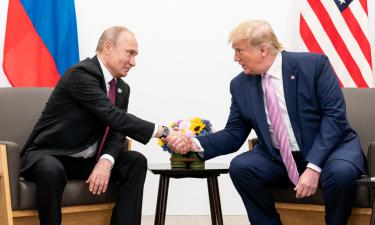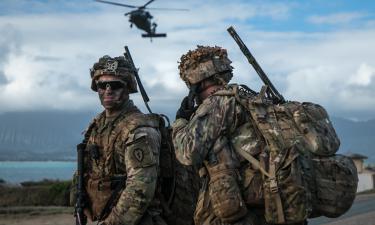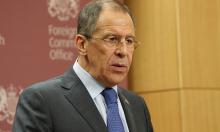How Can the Peace Be Won in Iraq?
Perestroika, American style While maintaining the greatest respect for international institutions and the role of the international community in building the new Iraq, it is important to have an appropriate idea about the results the USA would like to achieve in this country and the methods it intends to use. After all, in the near future America will remain the key player determining the situation in Iraq and around it. Judging by statements made by prominent US politicians and experts, the tasks facing US policy in Iraq can be united in two large blocks: "building an Iraqi nation" and in a broader sense, "modernising the whole Arab world." Ideally, the solution of the first task would mean the creation in the territory of present-day Iraq of a model democratic state which does not pose a threat to its closest neighbours, does not feel enmity towards the USA and promotes traditional liberal-democratic values in domestic policy. The second task is even more ambitious and implies the beginning of a process that would radically change the situation in the Arab world, lead to the settlement of the Arab-Israeli conflict, largely ease the problem of international terrorism and, in general, turn the Middle East from the source of a constant threat into a region of stability.
Now that the aims of US policy in Iraq have been established, I can make suppositions on the potential scenarios for how the situation in Iraq will develop. Thus, the creation of a democratic Iraq and a quick transfer of power to an Iraqi government is an absolutely unrealistic scenario. Seriously speaking, early democratic elections in this country will inevitably lead to Islamic radicals coming to power and will mean the creation in Iraq of a regime similar to the Taliban's in Afghanistan. Obviously, the Americans do not want such a turn of events and will do everything they can to prevent it.
The second scenario implies accepting the Iraqi realities, rejecting, at least for some time, the ideas of a democratic state and transferring power to "a strong hand," a kind of "Iraqi Pinochet" completely loyal to the USA. However, there are some problems in implementing this scenario in Iraq. It is hard to look for "a strong hand" among representatives of the emigre opposition because they are too detached from the real state of affairs in Iraq and their political authority in the country is too weak.
This figure cannot be a Kurd. Neither the Arab part of the population of Iraq nor Turkey, which will not allow the political influence or independence of the Kurds to become stronger, will accept this. Although Arab Shiites make up the majority of the population of Iraq, their representative cannot become the country's leader because this would lead to an inadmissible strengthening of Iran's political sway in Iraq. Moreover, this would also inevitably entail strengthening the positions of Islamic radicals, something the Americans will not allow. Hence, Arab Sunnites are left, or to be more precise, a BAATH party activist or an Iraqi general who was at first loyal to Saddam but then fell out of favour with the leader and fled abroad in fear of his life. These generals do exist, but virtually every one of them took part in suppressing the Kurds with chemical weapons and will never be accepted by them as a national leader.
Consequently, one must state that one scenario - a very long military presence and painstaking work "to build an Iraqi nation and its democratic institutions" - is realistic. That is, the point at issue is a de-facto protectorate or a mandated territory. The only question is whether this will be a US-British protectorate with the nominal participation of Poland and a number of other states or a protectorate under the mandate of the UN. A coalition government may be created to legitimatise the situation, but the practical administration of the country will either be entrusted to the Americans or the British, or will be divided by the international community via the UN mechanism.
To all appearances, the second model is more likely.
Firstly, it will take many years and billions of dollars to implement it and America, even with its economic and military might, will hardly cope with the task single-handed. Secondly, the political life of the USA is built on electoral cycles and if a quick military victory in Iraq has undoubtedly raised President Bush's popularity, it is not clear whether the Americans will be as enthusiastic about the idea of spending billions of dollars over many years to build democracy in Iraq.
This is especially obvious now that attacks on US soldiers have become more frequent in Iraqi cities and the US command for the first time pronounced the words "guerilla warfare." The scale of this warfare should not be exaggerated, but US voters are very sensitive even to relatively insignificant casualties suffered by US armed forces abroad, especially if they become a regular occurrence.
I think that it will be difficult to convince the overwhelming majority of US voters that democracy in Iraq is a priority area of US foreign policy and a national security problem. So, the Americans have agreed to return to the UN with the Iraq issue for quite rational and pragmatic reasons.
Russian Interests in Iraq
In the new situation in Iraq, it is important for Russia, first of all, to pursue its policy proceeding from national interests. Admittedly, for this, one should have an idea about them. Let's start with political interests. For all Russia's disagreement with the way the Americans and British started the operation in Iraq, one should clearly realise now that a US decision to withdraw from the country, under the pressure of human casualties and material costs, and leave it to its own devices would be the worst-case scenario for Moscow. This would mark the potential outbreak of civil war in Iraq or, at least, Islamic radicals taking power. The most important thing is that this would be a huge success for international terrorism and its renewed activity in all directions, in particular, in the direction of Russia.
Russia also has economic interests in Iraq. It is important for Moscow to avoid a sharp drop in prices on world oil markets when Iraqi oil enters them. Apocalyptic forecasts had been made that after taking control of Iraqi oil-fields, the USA would send oil prices down to $12 per barrel. As we see, nothing of the kind happened.
It is very important for Russia to preserve its presence on the Iraqi market and take part in restoring the Iraqi economy.
Russia may take advantage of its experience of many years of co-operation with Iraq, its knowledge of the country and the joint projects that are already underway. Moscow must spare no effort to keep them, intact bearing in mind, however, that the competitiveness of Russian industry is the main factor in this respect. Before the US military operation in Iraq, every fifth KAMAZ heavy-duty truck produced in Russia was exported there and this contract is far from completed. On an Iraqi order, the Gorky automotive plant manufactured a batch of taxis, but deliveries were suspended after the war broke out. One can cite a lot of examples to this effect.
Last but not least, there is the problem of the Iraqi debt, which is much talked about, but is not central on the list of Russian interests in Iraq. The figure at issue is about $8 billion, without interest. The approach to this problem adopted by the USA and the opposition forces in Baghdad backed by the Americans, has markedly changed of late. At first, the USA claimed that since Russia, Ukraine and Belarus were Saddam's friends and backed him, no one was going to repay their debts.
The altitude was let them settle this problem with Saddam." The Americans have now agreed that the problem of the Iraqi debt should be settled within the framework of the Paris Club, although the USA is still making appeals to write off a considerable part of the Iraqi debt. Russia's position on this issue must be very firm. Debts will not be written off unless Iraq takes steps towards compensation. Iraq is by no means a poor country and is quite solvent, although its needs some deferrals.
Criticism of Russia that it backed "a wrong regime" holds no water. Firstly, a greater part of the Iraqi debt was incurred before Hussein came to power. Secondly, if the international community recognises "the incorrectness of a regime" as legitimate grounds for writing its debts off, why then should Russia repay the debts of the USSR?
It is also important for Russia that the US-declared aims of the operation in Iraq be successfully achieved and that the norms of international law be observed in achieving them. This does not rule out the possibility of jointly perfecting "the rules of the game," adopted by the international community, adjusting them and bringing them into line with new threats and challenges to global security.
In the final analysis, if the Middle East ceases to be a refuge for international terrorism, a source of conflicts and threats to international security and becomes a part of the global economy, preserving its civilised identity, Russia will only stand to gain.
By Alexander KONOVALOV, Professor at the Moscow State Institute of International Relations, President of the Institute of Strategic Assessments
Subscribe to Pravda.Ru Telegram channel, Facebook, RSS!





